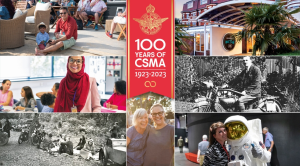
The fascinating collection at the Cotswold Motoring Museum tells a 100-year-old story of social change – and the evolution of your club
A hidden gem tucked away in the heart of the picturesque Cotswolds, Boundless Members take a tour of the Cotswold Motoring Museum, an impressive and eclectic collection of cars, from vintage motorbikes and sports cars to classic family saloons.
From 11 February 2023, the museum will be commemorating the accomplishments of Boundless through an exhibition entitled "100 Years of CSMA". The exhibition is comprised of eight towers scattered throughout the museum, each featuring displays of objects, photographs, and text. Additionally, two towers will showcase short films from our archive. These towers stand at a height of 2 meters and are equipped with their own internal lighting. The exhibition concludes with a room that connects our past to present Boundless members through a multi-screen film, archive objects, and a creatively designed audio-visual display. Click here to find out more.

A strange thing happens when visitors step into the first gallery of the Cotswold Motoring Museum (CMM) in Bourton-on-the-Water: they fall completely silent as they take in the sight. Covering almost every inch of the walls are enamel signs – Pegasus Motor Spirit, National Benzole, Elliman’s Embrocation, Player’s cigarettes, Dunlop and Castrol. The room is softly lit by the glass globes of mid-century petrol pumps. Chrome bumpers wink on nippy MGs; a curvaceous Riley evokes a glamorous bygone age. From the chequerboard floor to the pedal cars hanging from the rafters (and is that a canoe?), it’s hard to know where to look first.
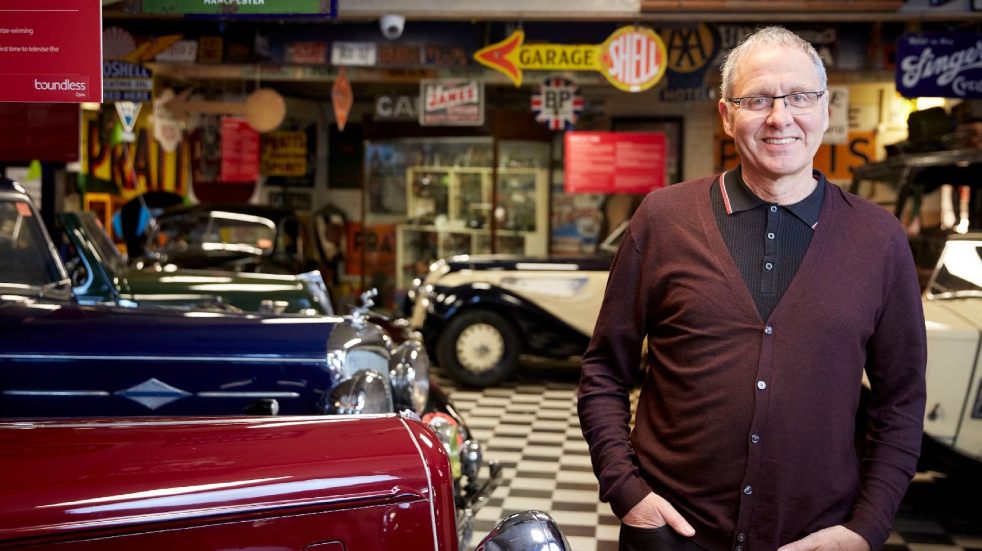
Michael Tambini, General Manager
“It’s a taste of everything,” says General Manager Michael Tambini, between greeting the Boundless members who are visiting today. Families pore over the display case behind him that’s brimming with memorabilia – Father Christmases riding bikes, and James Sadler and Sons’ prized 1938 racing car teapots. The crowd has found its voice now, excitement building. “It’s total overload,” laughs Clive Price, who’s travelled from Shropshire with his friend Mandy Pickering. “I can’t even take the signs in. There are thousands of them!”
In pride of place are the Austins – perhaps the most important cars in the CMM collection, in Michael’s opinion. “The Austin 7 really did start popular motoring in Britain,” he explains. “It was affordable, relatively easy to maintain, and you could fit a small family in there.” Nearly 2,500 were built during the first year of production, 1923.
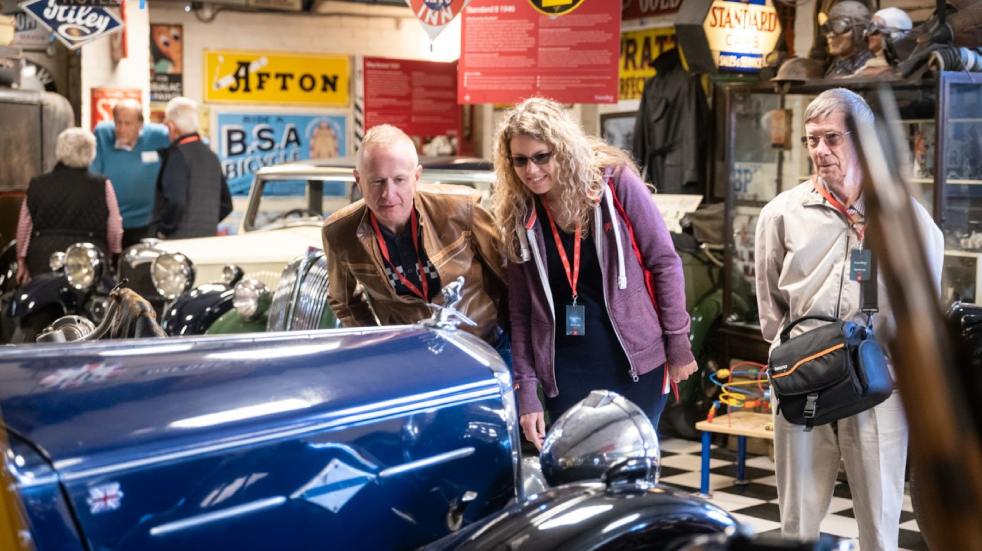
That same year, a group of motoring enthusiasts held the inaugural meeting of the Civil Service Motoring Association (CSMA), at a moment when society was on the cusp of change. From only 383,000 cars on British roads in 1923, numbers reached one million by 1930. The vision of those early motoring pioneers would go on to influence – and record – motoring history for the next hundred years.
A history in objects
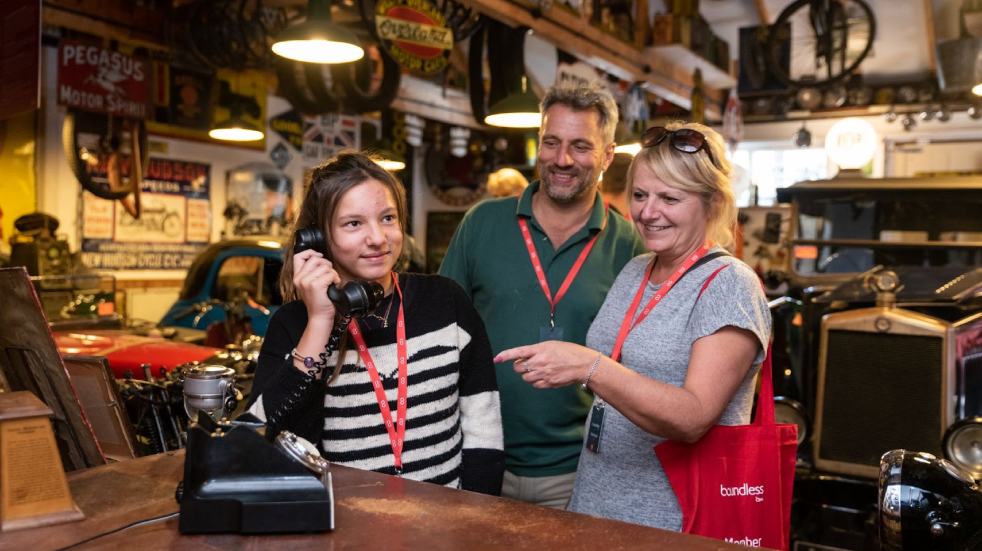
CMM started as the private collection of Mike Cavanagh. He opened the museum in 1978 and continued to collect until retiring in 1999, after which Boundless acquired it.
Seven galleries now showcase the car collection, spanning 1911 to 1974, and the museum also houses the nationally important CSMA archive. Its founders kept meticulous records, including minutes of the first meeting and photographs of their first run, in April 1923.
“It’s treasure,” enthuses CSMA archivist Bradley McCreary. “We’ve got magazines, clothes, badges, branded items – from oil tins to battery chargers – phonograph recordings of guest speakers, slides, photographs, documents, trophies... it goes on and on.” Little is currently on public display, but Bradley has been digitising items over the past three years, including part of the film collection – 29,000 feet of it. Many items feature in a recently published book, 100 Years of CSMA 1923–2023.
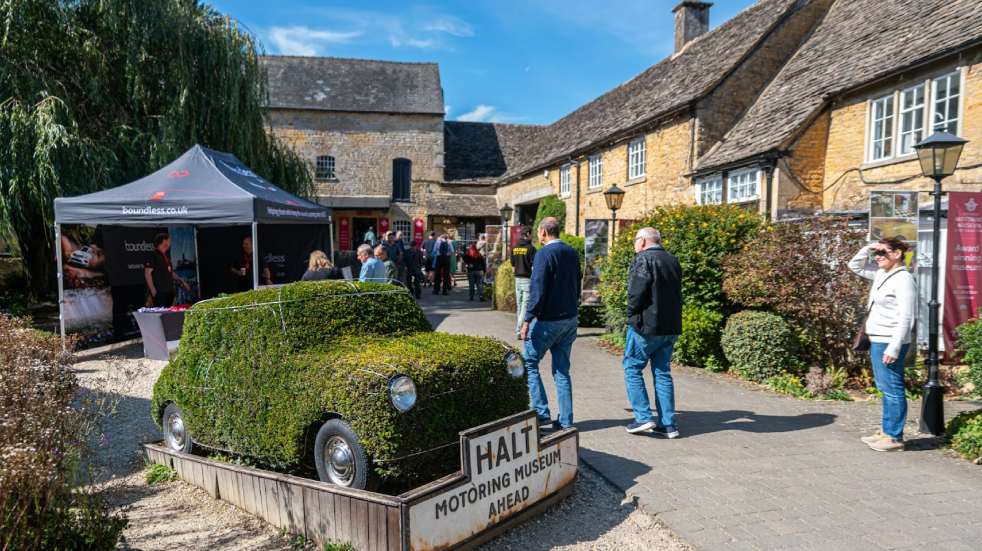
One handwritten archive account is by keen motorcyclist Fred Perks. Perks, Les Ridgway and Fred Whitehouse made up the CSMA team for the 1939 International Six Days Trial – the ‘Olympics of motorcycling’ – held that year in Austria, which had been annexed by Germany. As Michael tells it: “Halfway through they got word through the British consul to get out of the country immediately, and made a dash for freedom.” The trio abandoned the race, crossed into Switzerland and made it home. The archive holds Perks’ trophies, helmet and his passport, stamped with a swastika.
A family favourite
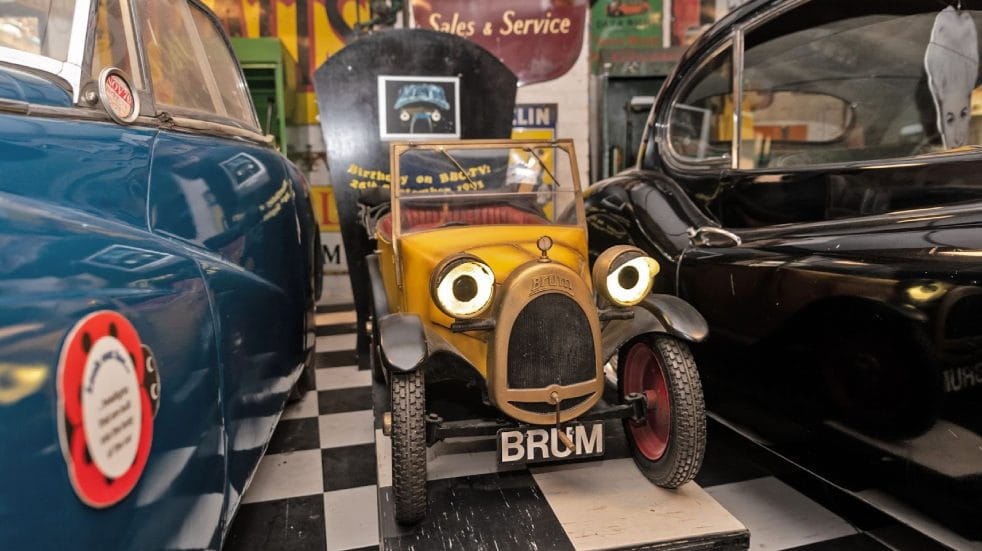
Sandwiched between a Jaguar XK140 and a Sunbeam Alpine is CMM’s brightest star. Brum’s headlamp eyes light up as you approach, as if he’s genuinely pleased to see you. The radio controlled car, a half-scale model of an Austin 7 Chummy, first hit TV screens in 1991 and his show has since aired in 20 countries. The opening and closing scenes of each episode were filmed at CMM, with Mike Cavanagh starring as the museum owner. “Even now, after all this time, people still know Brum and are very fond of him,” Michael says. “People write to him and send him birthday cards.”
Connecting with the past
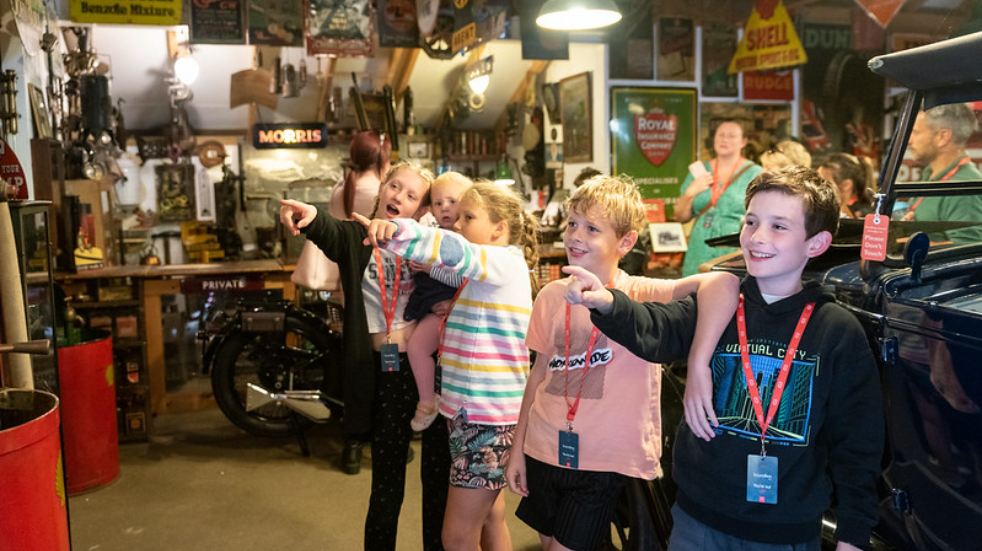
Both the CSMA archive and CMM collection tell a social history of motoring, and nowhere feels more like a time capsule than the recreation of Jack Lake’s workshop. In 1916, Jack was one of only three locals who could drive, and he later ran the town’s first garage. The contents – counter, tools, doors and all – were moved here after his death. His jacket hangs on the chair: it’s like he’s just nipped out.
One of the museum’s passionate volunteer mechanics, Jason Goss, who knew Jack, chats with Paul and Sue Jeston – second-generation members, visiting with their dog, Tia. As a child, Jason was taking an engine apart when he broke a piston ring. “So I went down to Jack Lake’s and he found me one. I think he charged me a penny for it.” Jack’s nickname was ‘Faker Lake’ – “because if he couldn’t find a part for you, he’d make one up. A lot of those skills are going – or gone,” says Jason.
It’s important to save history like this, Sue says, because it connects us with the past: “Think of how much must have got chucked away without somebody having the vision to think it’s important. It’s a different world now, even from when we were children. Go back 100 years and it’s different to anything we could imagine.”
In the final gallery, the Doctor Who theme plays from a mock-up of Radio Caroline. There are scooter club badges, Blue Peter annuals and a Raleigh Chopper. “Dad had one of these cars,” says Steven Hackett as he watches his 91-year-old father, Ron, carefully examine a 1964 Ford Zephyr. Ron’s memory isn’t what it was, but today he’s been telling his granddaughter, Emily, about working at the MG factory. “You can see it’s bringing it all back for him,” smiles Steven.
The next chapter
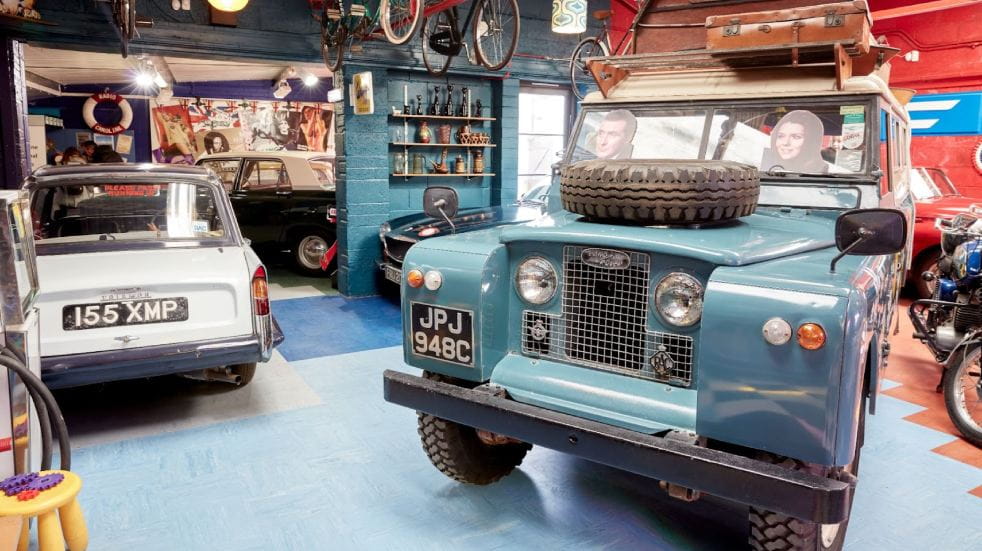
There are more than 33 million cars on British roads today, and our emotional connection to them has changed. “People say we’ll never be able to tell the future story of motoring because it’s so boring now,” Michael says. “It’s not boring – it’s just reached a conclusion. The internal combustion engine has done its job. Now it’s going to be electric vehicles, and maybe self-driving cars. The story we’re telling is a chapter, which starts with our Austin 7s.” Changing attitudes don’t mean we should wipe this history out and pretend it didn’t happen, says Ian Phillips, a Boundless member from Leicestershire. “It doesn’t matter if these cars polluted – they were here, and there was style and design, and this is how people lived. If you don’t learn from history then you don’t go forward either.”
The CSMA archive continues to chart that evolving story with every item added. Michael predicts that in the next hundred years, vehicles will become as unrecognisable as modern cars would be to the CSMA’s founders. “It will be like how we view horse-drawn transport. Now, we have lots of visitors who remember driving or repairing our cars. As younger people come through, they’re going to look back on it as a mysterious time. They’ll think, ‘Did you really drive those things?’”
Do more with Boundless
Free entry for Boundless members
To enjoy free admission to the fascinating Cotswold Motoring Museum for you and one adult guest, plus up to five children, all you need to do is show your Boundless membership card. Find out more at cotswoldmotoringmuseum.co.uk.
Why not stay over?
Boundless-owned Cotswold Cottages are right next to the museum, and there’s lots to see in the area, so make the most of your 20% discounted rate and book one of the one bedroom or three-bedroom properties. boundless.co.uk/cotswoldcottages




